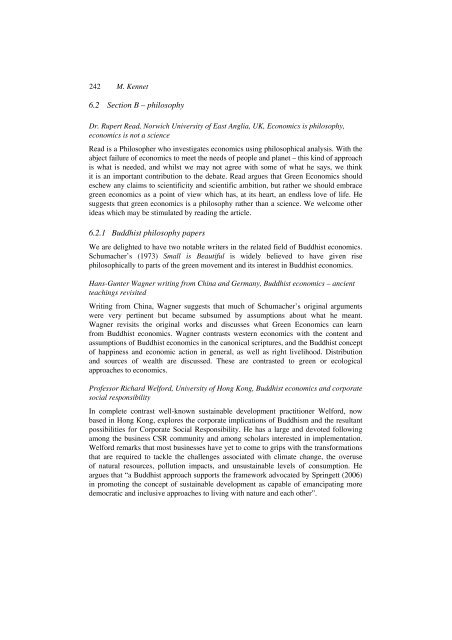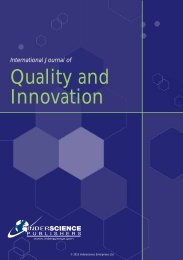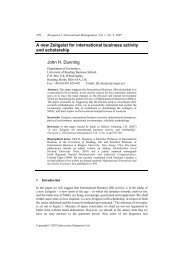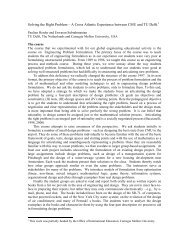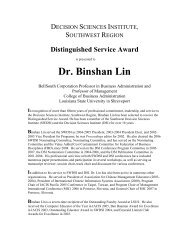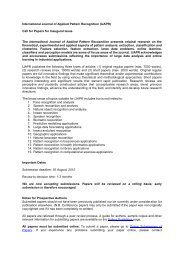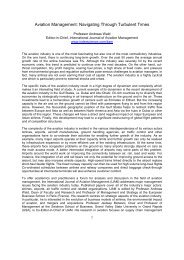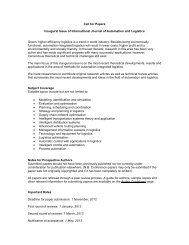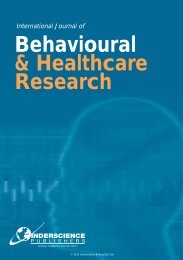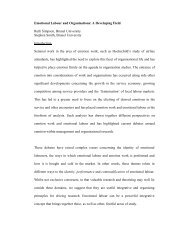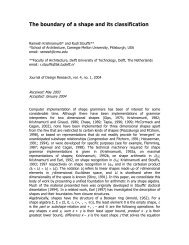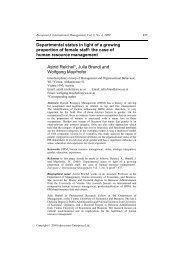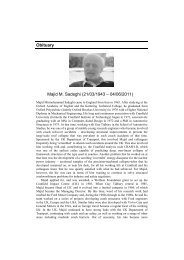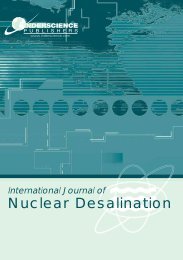Editorial: progress in Green Economics: ontology, concepts and ...
Editorial: progress in Green Economics: ontology, concepts and ...
Editorial: progress in Green Economics: ontology, concepts and ...
Create successful ePaper yourself
Turn your PDF publications into a flip-book with our unique Google optimized e-Paper software.
242 M. Kennet<br />
6.2 Section B – philosophy<br />
Dr. Rupert Read, Norwich University of East Anglia, UK, <strong>Economics</strong> is philosophy,<br />
economics is not a science<br />
Read is a Philosopher who <strong>in</strong>vestigates economics us<strong>in</strong>g philosophical analysis. With the<br />
abject failure of economics to meet the needs of people <strong>and</strong> planet – this k<strong>in</strong>d of approach<br />
is what is needed, <strong>and</strong> whilst we may not agree with some of what he says, we th<strong>in</strong>k<br />
it is an important contribution to the debate. Read argues that <strong>Green</strong> <strong>Economics</strong> should<br />
eschew any claims to scientificity <strong>and</strong> scientific ambition, but rather we should embrace<br />
green economics as a po<strong>in</strong>t of view which has, at its heart, an endless love of life. He<br />
suggests that green economics is a philosophy rather than a science. We welcome other<br />
ideas which may be stimulated by read<strong>in</strong>g the article.<br />
6.2.1 Buddhist philosophy papers<br />
We are delighted to have two notable writers <strong>in</strong> the related field of Buddhist economics.<br />
Schumacher’s (1973) Small is Beautiful is widely believed to have given rise<br />
philosophically to parts of the green movement <strong>and</strong> its <strong>in</strong>terest <strong>in</strong> Buddhist economics.<br />
Hans-Gunter Wagner writ<strong>in</strong>g from Ch<strong>in</strong>a <strong>and</strong> Germany, Buddhist economics – ancient<br />
teach<strong>in</strong>gs revisited<br />
Writ<strong>in</strong>g from Ch<strong>in</strong>a, Wagner suggests that much of Schumacher’s orig<strong>in</strong>al arguments<br />
were very pert<strong>in</strong>ent but became subsumed by assumptions about what he meant.<br />
Wagner revisits the orig<strong>in</strong>al works <strong>and</strong> discusses what <strong>Green</strong> <strong>Economics</strong> can learn<br />
from Buddhist economics. Wagner contrasts western economics with the content <strong>and</strong><br />
assumptions of Buddhist economics <strong>in</strong> the canonical scriptures, <strong>and</strong> the Buddhist concept<br />
of happ<strong>in</strong>ess <strong>and</strong> economic action <strong>in</strong> general, as well as right livelihood. Distribution<br />
<strong>and</strong> sources of wealth are discussed. These are contrasted to green or ecological<br />
approaches to economics.<br />
Professor Richard Welford, University of Hong Kong, Buddhist economics <strong>and</strong> corporate<br />
social responsibility<br />
In complete contrast well-known susta<strong>in</strong>able development practitioner Welford, now<br />
based <strong>in</strong> Hong Kong, explores the corporate implications of Buddhism <strong>and</strong> the resultant<br />
possibilities for Corporate Social Responsibility. He has a large <strong>and</strong> devoted follow<strong>in</strong>g<br />
among the bus<strong>in</strong>ess CSR community <strong>and</strong> among scholars <strong>in</strong>terested <strong>in</strong> implementation.<br />
Welford remarks that most bus<strong>in</strong>esses have yet to come to grips with the transformations<br />
that are required to tackle the challenges associated with climate change, the overuse<br />
of natural resources, pollution impacts, <strong>and</strong> unsusta<strong>in</strong>able levels of consumption. He<br />
argues that “a Buddhist approach supports the framework advocated by Spr<strong>in</strong>gett (2006)<br />
<strong>in</strong> promot<strong>in</strong>g the concept of susta<strong>in</strong>able development as capable of emancipat<strong>in</strong>g more<br />
democratic <strong>and</strong> <strong>in</strong>clusive approaches to liv<strong>in</strong>g with nature <strong>and</strong> each other”.


